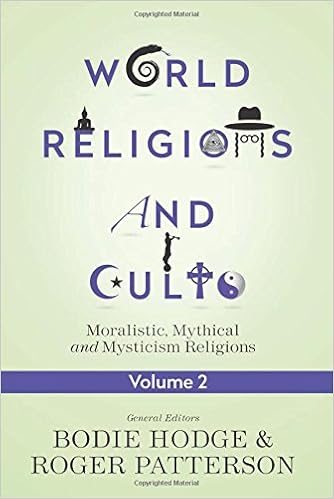Pantheism
Definition
Pantheism denotes any philosophy which claims that god and the universe are identical.
Keywords: Pantheism, Philosophies, Philosophy, Rational, Justification, Assumption, Presupposition, Contradiction, Reason, Universal Truth.
Veracity
Pantheistic claims are false .
Proof
Humans assume the universal truth that all contradictions are false. Any worldview that does not allow for this assumption to be rationally justified is deductively false.
Premise 1: If absolute ultimacy is shared, then universal truth claims are believed without reason.
Premise 2: Under pantheism, absolute ultimacy is shared by the fundamental elements of the universe.
Conclusion: Therefore, under pantheism, universal truth claims are believed without reason.
If pantheistic claims are true, there is no reason to believe universal truth claims, including universal noncontradiction. There is then no reason to believe that contradictory claims are deductively false, thereby making pantheistic claims themselves deductively false.
This Argument from Reason demonstrates that pantheism is false.

Gilbert Guttlebocker, Defender of Dragons
Riveting, yet absurd; romantic, yet innocent; Gilbert Guttlebocker, Defender of Dragons is a little Roald Dahl, a little Harry Potter, and a little Chronicles of Narnia, all rolled into one. Timothy McCabe collaborates with the great Benedict Ballyhoot to bring you the novel of the century!

In Printed Form
Along with numerous other authors including Don Landis, Bodie Hodge and Roger Patterson, Timothy McCabe contributes analyses of various world religions and cults in this volume from Master Books.
Other Writings
"Does evolution (and with that, the evils that have occurred in the name of natural selection, prior to the fall of man) disprove the existence of God?"
In short, no. There is absolutely no evidence that evolution, in the sense in which this question is referring to it, has ever happened. Evidence of the lack of evidence includes the "theory" of Punctuated Equilibrium, developed by evolutionary paleontologists Niles Eldredge and Stephen Jay Gould. One of the celebrated functions of this theory is its demonstration of why, if evolution were actually true, there would be no fossil evidence for it.
Continue reading...
"If God is all-powerful and can do anything and everything, can he build a wall high enough so that he could not jump over it?"
No. The God of the Bible is incapable of numerous things. Essentially, all of these things are summed up in 2 Timothy 2:13 which states that God "cannot deny Himself". The God of scripture is a logical God, which is the only reason why the laws of logic, such as the law of non-contradiction, can be trusted to be universal and invariant.
Continue reading...
Unitarianism is false: a simple proof
Unitarianism refers to any philosophy which claims that divine sovereignty is not shared in any way.
Continue reading...